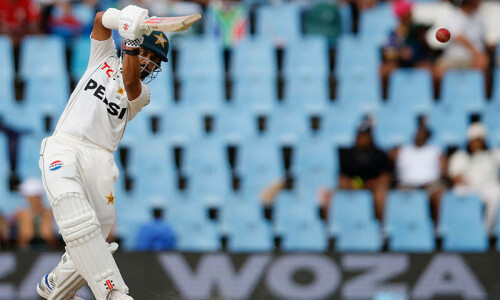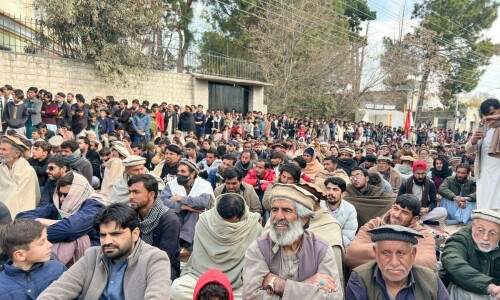LAHORE: The Lahore High Court on Friday ordered that the registration of new schools be made conditional to the implementation of the school bus policy.
Hearing public interest petitions on environmental issues, Justice Shahid Karim instructed the provincial government that buses must be made mandatory for school registration.
The judge ordered the government to halt the registration of new schools, saying every school must follow the policy of provision of buses to pick and drop the students.
The judge also expressed his displeasure over the delay in implementation of the court’s order to start buses for 50 per cent of students, asking the government why steps were not taken in this regard.
The judge directed a law officer to submit a compliance report on the bus policy by Dec 30.
Separately, a member of a court’s judicial commission mentioned that they had instructed the Wasa managing director to resume the work on water meters.
Wasa’s counsel Mian Irfan Akram stated that there were financial issues with a Chinese company, which wanted to open a local bank account.
Justice Karim remarked that the matter had already been delayed significantly and should be expedited.
The government’s lawyer also informed the court that fines on traffic rules violations by motorcycles and cars were being increased.
The judge observed that imposing a fine of Rs10,000 for violation might deter vehicle owners, as a fine of Rs1,500 hardly makes any impact.
The judge also observed that laws cannot be formulated casually every day.
Acquitted: The Lahore High Court has acquitted a man convicted in a triple murder case, observing that tunnel vision by police and prosecution has pernicious effects in the criminal justice system.
In his judgment allowing the appeal of the convict, Justice Muhammad Amjad Rafiq stated that legal scholars typically include “confirmation bias” as an element of tunnel vision.
He said confirmation bias is a powerful psychological process that causes an individual to unconsciously prefer information that supports a conclusion that they have already settled on and to disregard or be overly sceptical about information that contradicts that conclusion.
The judge observed that the tunnel vision narrows the focus of an investigation to a single target and confirmation bias leads investigators and prosecutors to filter in evidence supporting their theory and to ignore or undervalue evidence that suggests their theory might be incorrect.
A trial court of Sialkot had in 2019 awarded life imprisonment to Usama Ali on three counts on charges of killing three friends – Rabbi Umais, Hamid Ali and Zainul Hassan.
Initially, the police had registered an FIR against unidentified persons, however, later implicated the accused on the supplementary statement of the complainant.
Justice Rafiq noted that medical evidence in this case does not advance the case of prosecution because nobody had seen the occurrence, therefore, locale, dimension and nature of injuries cannot be read as supportive to any fact alleged by the witnesses of circumstantial evidence.
The judge observed that there is no doubt to hold that the prosecution miserably failed to establish the charge against the convict beyond any shadow of doubt.
The judge allowed the appeal and set aside the sentence handed down by the trial court, directing the jail authorities to release the appellant forthwith if not required in any other case.
Published in Dawn, December 28th, 2024













































Dear visitor, the comments section is undergoing an overhaul and will return soon.